-
Finding love: how loyalty programs can build a lasting relationship with e-commerce

By Martin Smaerup, Head of Sales, Pointspay
E-commerce sales continue to surge, with global online retail revenue projected to have reached $6.3 trillion in 2023 and grow to an estimated $8.1 trillion by the end of 2024. What's more, cross-border commerce is expected to grow by 108% between now and to 2028. Yet, the unfortunate truth for so many loyalty programs is that they are missing the opportunity to generate significant revenue from and engage members via e-commerce. In short, the relationship is faltering, but the good news is that it's a love story that can be rewritten.
Much of the problem comes down to the fact that consumer behavior has undergone a seismic shift in recent years. Modern shoppers seek convenience, efficiency and of course a good deal. Who could ignore the opportunity to spend less cash while also collecting points or miles? When they wish to purchase a pair of jeans or the latest iPhone, they navigate straight to a retailer, add the item to their basket, and swiftly proceed to the next thing. On the other hand, loyalty programs still rely on legacy technologies such as tracking, leading to a cumbersome and outdated user journey, necessitating multiple clicks and prompting them to consider loyalty points before the actual purchase.
“In today's fast-paced world, loyalty programs must be ever-present, offering a seamless and real-time experience.”
Due to this fractured user journey, only the most astute and dedicated loyalty program enthusiasts actively seek out extra points or miles. The pursuit of these rewards becomes a niche activity. The treasure hunters for miles are few and far between, and this failure to activate the remaining portion of the loyalty program's user base represents a missed opportunity of huge proportions.
Consumers today also demand immediate gratification. They have no patience for completing a transaction and then waiting weeks to receive their hard-earned points or miles. As a consumer myself, I can attest that I may not recall the transactions I made five weeks ago! In today's fast-paced world, loyalty programs must be ever-present, offering a seamless and real-time experience for consumers when they make online purchases.
Plus, many loyalty programs lean on outdated technology that is now reeling from the impact of the demise of tracking cookies. While some influencers claim to have found alternative solutions, they still rely on some form of transaction tracking, forcing customers to navigate through program websites.
Missed opportunities
So, what are loyalty programs missing out on? The answer of course includes revenue, but it extends much further. They are missing out on engagement opportunities, failing to activate their members in their day-to-day lives. These programs are not effectively integrating into their members' household budgets beyond travel-related expenditures. Loyalty currency must become an integral part of a member's life, fostering a continuous connection with the program.
The knock-on effect of this lack of engagement translates to a diminished focus on conquering the e-commerce market, as programs neglect the necessary marketing efforts.
The question remains: How much revenue are loyalty programs missing out on? The answer varies depending on consumer behavior and market dynamics. Over time, Pointspay aspires to capture a significant percentage of the total amount a member spends online. In Europe, this can amount to over €3,000 per member, while in the US this figure rises to $3,500 . And, let's not forget, frequent flyers are THE heavy shoppers, spending some five to seven times more on their credit cards than average consumers in their respective countries.
By ensuring that members earn miles or points on a significant proportion of their online spending, programs can multiply these benefits across their active member base. This discussion primarily focuses on active members, but there's significant untapped potential to activate those who engage with a program infrequently, perhaps only when booking their annual summer holiday. By encouraging them to integrate their household budget into everyday shopping throughout the year, programs can expand their pool of active members, unlocking substantial growth potential.
Building a loyal relationship
So, what can be done to optimize the situation? First and foremost, loyalty programs must position themselves where the consumers are—right at the retailer's doorstep. It has to be effortless and intuitive for consumers to capitalize on what could ultimately be a significant advantage offered by the program. Programs should align with users' natural behavior, motivating and rewarding them through real-time earning in their preferred currency or spending, creating a seamless, user-centric experience.
Real-time engagement is the linchpin. As previously mentioned, consumers will not tolerate delays. They conclude transactions swiftly and move on to the next. By seamlessly integrating real-time accruals with user-friendliness, programs can effectively engage and activate individuals in their everyday lives.
“Pointspay believes that a fully branded program is the way forward. Such branding is not only recognizable to program members but also intuitive for them to utilize.”
Are we at a juncture where a fundamental shift in mindset is required among program owners? Absolutely. The online realm demands a complete shift in perspective regarding what a solution should entail.
Pointspay believes that a fully-branded program is the way forward, providing programs with the opportunity to launch their own, instantly recognizable marketing and payment solution. Such a solution works, as program members understand the essence behind the brand. Of course, this brand needs to be effectively communicated to retailers to encourage the adoption of the payment solution it represents, providing multiple opportunities to engage with both active and dormant members. With a robust business case and a solid partnership in place, substantial revenues can be generated, even in the initial stages of implementing such a solution.
Everyday engagement
If we think specifically about airlines, this shift must coincide with an understanding of the changing behavior of frequent flyers post-pandemic. Virtual meetings and remote collaborations through platforms like Teams, Zoom, and Google Meet have reduced the need for physical meetings and, consequently, travel. As a result, airlines must explore alternative ways to sell miles or points.
Airlines possess a captivating product. Every trip, whether it's a dream vacation or a successful business excursion, leaves a lasting memory. After returning from a vacation, the next day often marks the beginning of planning the next adventure. Airlines can play a pivotal role in nurturing these dreams by contributing to them throughout the year, not just during specific trips. Real-time earning can make programs relevant every day, transforming them from sporadic engagements to daily experiences.
This shift represents the key to mending the fractured love story between loyalty programs and consumers, ultimately building a profound and enduring relationship.
-
Finding love: how loyalty programs can build a lasting relationship with e-commerce

By Martin Smaerup, Head of Sales, Pointspay
E-commerce sales continue to surge, with global online retail revenue projected to have reached $6.3 trillion in 2023 and grow to an estimated $8.1 trillion by the end of 2024. What's more, cross-border commerce is expected to grow by 108% between now and to 2028. Yet, the unfortunate truth for so many loyalty programs is that they are missing the opportunity to generate significant revenue from and engage members via e-commerce. In short, the relationship is faltering, but the good news is that it's a love story that can be rewritten.
Much of the problem comes down to the fact that consumer behavior has undergone a seismic shift in recent years. Modern shoppers seek convenience, efficiency and of course a good deal. Who could ignore the opportunity to spend less cash while also collecting points or miles? When they wish to purchase a pair of jeans or the latest iPhone, they navigate straight to a retailer, add the item to their basket, and swiftly proceed to the next thing. On the other hand, loyalty programs still rely on legacy technologies such as tracking, leading to a cumbersome and outdated user journey, necessitating multiple clicks and prompting them to consider loyalty points before the actual purchase.
“In today's fast-paced world, loyalty programs must be ever-present, offering a seamless and real-time experience.”
Due to this fractured user journey, only the most astute and dedicated loyalty program enthusiasts actively seek out extra points or miles. The pursuit of these rewards becomes a niche activity. The treasure hunters for miles are few and far between, and this failure to activate the remaining portion of the loyalty program's user base represents a missed opportunity of huge proportions.
Consumers today also demand immediate gratification. They have no patience for completing a transaction and then waiting weeks to receive their hard-earned points or miles. As a consumer myself, I can attest that I may not recall the transactions I made five weeks ago! In today's fast-paced world, loyalty programs must be ever-present, offering a seamless and real-time experience for consumers when they make online purchases.
Plus, many loyalty programs lean on outdated technology that is now reeling from the impact of the demise of tracking cookies. While some influencers claim to have found alternative solutions, they still rely on some form of transaction tracking, forcing customers to navigate through program websites.
Missed opportunities
So, what are loyalty programs missing out on? The answer of course includes revenue, but it extends much further. They are missing out on engagement opportunities, failing to activate their members in their day-to-day lives. These programs are not effectively integrating into their members' household budgets beyond travel-related expenditures. Loyalty currency must become an integral part of a member's life, fostering a continuous connection with the program.
The knock-on effect of this lack of engagement translates to a diminished focus on conquering the e-commerce market, as programs neglect the necessary marketing efforts.
The question remains: How much revenue are loyalty programs missing out on? The answer varies depending on consumer behavior and market dynamics. Over time, Pointspay aspires to capture a significant percentage of the total amount a member spends online. In Europe, this can amount to over €3,000 per member, while in the US this figure rises to $3,500 . And, let's not forget, frequent flyers are THE heavy shoppers, spending some five to seven times more on their credit cards than average consumers in their respective countries.
By ensuring that members earn miles or points on a significant proportion of their online spending, programs can multiply these benefits across their active member base. This discussion primarily focuses on active members, but there's significant untapped potential to activate those who engage with a program infrequently, perhaps only when booking their annual summer holiday. By encouraging them to integrate their household budget into everyday shopping throughout the year, programs can expand their pool of active members, unlocking substantial growth potential.
Building a loyal relationship
So, what can be done to optimize the situation? First and foremost, loyalty programs must position themselves where the consumers are—right at the retailer's doorstep. It has to be effortless and intuitive for consumers to capitalize on what could ultimately be a significant advantage offered by the program. Programs should align with users' natural behavior, motivating and rewarding them through real-time earning in their preferred currency or spending, creating a seamless, user-centric experience.
Real-time engagement is the linchpin. As previously mentioned, consumers will not tolerate delays. They conclude transactions swiftly and move on to the next. By seamlessly integrating real-time accruals with user-friendliness, programs can effectively engage and activate individuals in their everyday lives.
“Pointspay believes that a fully branded program is the way forward. Such branding is not only recognizable to program members but also intuitive for them to utilize.”
Are we at a juncture where a fundamental shift in mindset is required among program owners? Absolutely. The online realm demands a complete shift in perspective regarding what a solution should entail.
Pointspay believes that a fully-branded program is the way forward, providing programs with the opportunity to launch their own, instantly recognizable marketing and payment solution. Such a solution works, as program members understand the essence behind the brand. Of course, this brand needs to be effectively communicated to retailers to encourage the adoption of the payment solution it represents, providing multiple opportunities to engage with both active and dormant members. With a robust business case and a solid partnership in place, substantial revenues can be generated, even in the initial stages of implementing such a solution.
Everyday engagement
If we think specifically about airlines, this shift must coincide with an understanding of the changing behavior of frequent flyers post-pandemic. Virtual meetings and remote collaborations through platforms like Teams, Zoom, and Google Meet have reduced the need for physical meetings and, consequently, travel. As a result, airlines must explore alternative ways to sell miles or points.
Airlines possess a captivating product. Every trip, whether it's a dream vacation or a successful business excursion, leaves a lasting memory. After returning from a vacation, the next day often marks the beginning of planning the next adventure. Airlines can play a pivotal role in nurturing these dreams by contributing to them throughout the year, not just during specific trips. Real-time earning can make programs relevant every day, transforming them from sporadic engagements to daily experiences.
This shift represents the key to mending the fractured love story between loyalty programs and consumers, ultimately building a profound and enduring relationship.
-
The Loylogic Podcast: How African Bank is rewarding the unrewarded

We find out how African Bank’s Audacious Rewards program is incentivizing positive financial behavior for all customers.
-
Six ways to navigate the future of fuel loyalty programs

For a recent episode of the Loylogic Podcast, Olivier Martinet, CEO of Posidonia Consulting and former Vice President of Marketing at BP, joined us to discuss the future of large-scale fuel and mobility rewards programs.
The conversation focused on the evolution of loyalty strategies in the fuel industry, driven by digitalization, the shift towards electric vehicles, and the transformation of fuel companies into energy providers and mobility hubs, and much more.
To listen to the podcast in full, simply click below. Six key route markers that will help loyalty programs navigate the changing fuel loyalty landscape can be found below.
1. There’s no one-size-fits-all approach: Olivier challenged the notion of a universal best-in-class fuel rewards program, emphasizing that success is highly dependent on the alignment between the program, company strategy, and readiness for implementation. He did, however, introduce four pillars that loyalty program owners should consider that will drive success, namely: ease of participation, relevance, personalization, and profitability. By focusing on these four elements, companies can find the right balance between customer advantage and strategic adaptability.
2. Loyalty strategies need to be tailored to company size and scope: The level of focus on the four pillars needs to vary depending on the company's size and global reach. For example, larger organizations tend to have a greater need to balance customer advantage and brand consistency, reflecting a more comprehensive approach to loyalty programs that considers both local and global factors.
3. The shift to electric vehicles will have a profound impact on loyalty: Olivier highlighted the impact of the increasing adoption of electric vehicles on how customers interact with brands – and therefore loyalty. Consumer interaction will change and loyalty programs must adapt to this new behavior.
4. Fuel companies transforming into energy providers: Major fuel companies are repositioning themselves as energy providers, with collaborations and investments in alternative energy sources already underway. This shift suggests a future of potential joint ventures and partnerships, reflecting a broader transformation within the energy sector. This needs to be factored into thinking around loyalty and how both earn and burn of points or miles happens.
5. Extended dwell times and mobility hubs: The rise of ‘mobility hubs’ is impacting loyalty offers. Longer customer dwell times due to electric vehicle charging present new challenges and opportunities for loyalty programs. Companies need to rethink their strategies to engage customers during extended on-site interactions and integrate these experiences with home charging behavior.
6. Personalization beyond marketing: All loyalty programs, regardless of sector, should go beyond marketing and engage in strategic decision-making. Olivier emphasized the wider range of use cases that arise from privileged customer data, including category management, pricing policies and assortment range. As a result, loyalty schemes should be considered as long-term strategic tools that have a seat at the boardroom table.
In conclusion, the future of fuel rewards programs is dynamic and requires companies to adapt to digitalization, changing consumer behaviors, and the broader energy landscape. Success lies in a personalized and adaptable approach that considers both customer needs and long-term strategic goals. As fuel companies transition into energy providers, collaboration and innovative loyalty strategies will play a crucial role in shaping the industry's future.
-
Six ways to navigate the future of fuel loyalty programs

For a recent episode of the Loylogic Podcast, Olivier Martinet, CEO of Posidonia Consulting and former Vice President of Marketing at BP, joined us to discuss the future of large-scale fuel and mobility rewards programs.
The conversation focused on the evolution of loyalty strategies in the fuel industry, driven by digitalization, the shift towards electric vehicles, and the transformation of fuel companies into energy providers and mobility hubs, and much more.
To listen to the podcast in full, simply click below. Six key route markers that will help loyalty programs navigate the changing fuel loyalty landscape can be found below.
1. There’s no one-size-fits-all approach: Olivier challenged the notion of a universal best-in-class fuel rewards program, emphasizing that success is highly dependent on the alignment between the program, company strategy, and readiness for implementation. He did, however, introduce four pillars that loyalty program owners should consider that will drive success, namely: ease of participation, relevance, personalization, and profitability. By focusing on these four elements, companies can find the right balance between customer advantage and strategic adaptability.
2. Loyalty strategies need to be tailored to company size and scope: The level of focus on the four pillars needs to vary depending on the company's size and global reach. For example, larger organizations tend to have a greater need to balance customer advantage and brand consistency, reflecting a more comprehensive approach to loyalty programs that considers both local and global factors.
3. The shift to electric vehicles will have a profound impact on loyalty: Olivier highlighted the impact of the increasing adoption of electric vehicles on how customers interact with brands – and therefore loyalty. Consumer interaction will change and loyalty programs must adapt to this new behavior.
4. Fuel companies transforming into energy providers: Major fuel companies are repositioning themselves as energy providers, with collaborations and investments in alternative energy sources already underway. This shift suggests a future of potential joint ventures and partnerships, reflecting a broader transformation within the energy sector. This needs to be factored into thinking around loyalty and how both earn and burn of points or miles happens.
5. Extended dwell times and mobility hubs: The rise of ‘mobility hubs’ is impacting loyalty offers. Longer customer dwell times due to electric vehicle charging present new challenges and opportunities for loyalty programs. Companies need to rethink their strategies to engage customers during extended on-site interactions and integrate these experiences with home charging behavior.
6. Personalization beyond marketing: All loyalty programs, regardless of sector, should go beyond marketing and engage in strategic decision-making. Olivier emphasized the wider range of use cases that arise from privileged customer data, including category management, pricing policies and assortment range. As a result, loyalty schemes should be considered as long-term strategic tools that have a seat at the boardroom table.
In conclusion, the future of fuel rewards programs is dynamic and requires companies to adapt to digitalization, changing consumer behaviors, and the broader energy landscape. Success lies in a personalized and adaptable approach that considers both customer needs and long-term strategic goals. As fuel companies transition into energy providers, collaboration and innovative loyalty strategies will play a crucial role in shaping the industry's future.
-
SAS and Pointspay reach agreement to launch new loyalty marketing and payment solution

Loyalty marketing and payment platform introduces a convenient way for SAS EuroBonus members to seamlessly collect and spend EuroBonus Points during their everyday shopping experiences.
-
SAS and Pointspay reach agreement to launch new loyalty marketing and payment solution

Loyalty marketing and payment platform introduces a convenient way for SAS EuroBonus members to seamlessly collect and spend EuroBonus Points during their everyday shopping experiences.
-
Gaining Altitude: Unpacking airBaltic's Web3 Loyalty Strategy
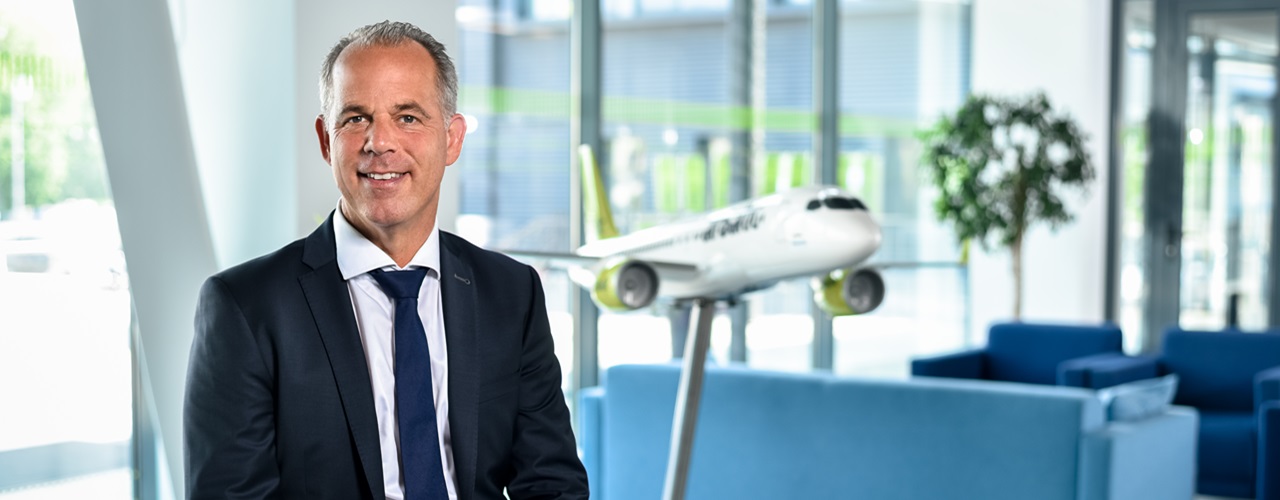
Join us for the latest episode of the Loylogic Podcast as we explore airBaltic's pioneering entry into Web3 with NFTs in their airBaltic Club loyalty program.
-
Gaining Altitude: Unpacking airBaltic's Web3 Loyalty Strategy

Join us for the latest episode of the Loylogic Podcast as we explore airBaltic's pioneering entry into Web3 with NFTs in their airBaltic Club loyalty program.
-
The Loylogic Podcast - Fueling the future: The changing world of fuel rewards programs
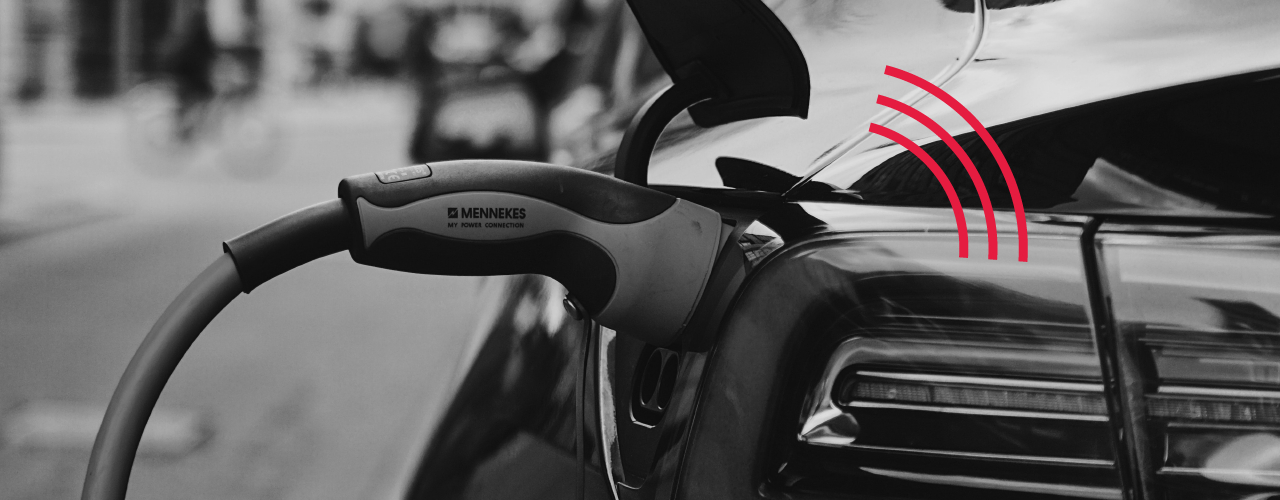
What’s fueling the future of large scale fuel rewards programs?
For this episode of the Loylogic Podcast, Olivier Martinet, CEO of Posidonia Consulting and former Vice President of marketing at BP, joins us to discuss fuel loyalty programs and what’s driving any rethinking of customer retention, revenue generation and incentivized engagement strategies.
In this discussion, Olivier emphasizes the importance of tailoring fuel rewards propositions to fit each company's strategy and customer engagement capabilities. Key talking points include:
- Instead of searching for a universal best-in-class program, he suggests evaluating programs based on four lenses: ease to participate, relevance, personalization, and profitability.
- The level of focus on these lenses varies based on the company size and scope, with global organizations showing a greater inclination towards balancing customer advantage and brand consistency.
- How the increasing digitalization and shift towards electric vehicles in the fuel industry are driving organizations to rethink their loyalty strategies, recognizing that a loyalty scheme is not just a marketing tool but also a privileged data provider for long-term strategic adaptation.
- Why, as the industry moves towards becoming energy providers, the evolving landscape of mobility hubs and electric vehicles will impact loyalty offers, requiring companies to adjust to longer customer dwell times and the integration of home charging behavior.
- Why major fuel companies are indeed repositioning themselves as energy providers, and collaborations with other energy companies and investments in alternative energy sources are already taking place, signifying a shift towards a future of potential joint ventures and partnerships.
- Why loyalty program owners should keep earn simple but creative with the burn side, with the differentiator coming in terms of personalization, and how customer data is handled.
To hear Olivier’s thoughts on these topics and much more, listen using the link below, or read on for the full transcript.
(1:27) Olivier, in your opinion, what are currently the best in class fuel rewards propositions around the world? And what is setting them apart?
Olivier Martinet: "That's a good question. And maybe I won't answer that directly, because at the end of the day, there's one thing I really don't believe in is that there's a best in class program. Basically, all programs, or success of a program, is very much dependant on the fit between the program as it is with the company, the company strategy, but also the readiness of a company to be using it. To some extent, the best in class aspect is having the right program for the company, for the company's targets and what that company is able to do with engaging customers. Okay, so it's probably not directly answering your question, but I guess it's a key feature of the thinking and how I've been approaching loyalty schemes for about 30 years."
(2:28) So your approach there is very much steering away from a one-size-fits-all strategy and instead looking at a case-by-case basis?
Olivier: "Yes, absolutely. The KPIs I'm looking into, to decide what is where we should go. The first one is around ease to participate. And when I'm saying this, it's ease to participate on both sides, from the consumer angle, but also from a retailer or partner point of view.
"The second one, the second lens is on the relevance. How relevant is a program as a consumer on the receiving end, but also how relevant is this program to my strategy to be engaging customers going forward?
"The third lens is personalization. And when I'm saying personalization, what is the right level of personalization? And are we talking to groups? Are we talking to a segment of one? And this is very highly dependant on the capabilities you have as a company, in terms of what you are going to be doing with the data? How are you going to be engaging the customers? How far have you gone on the digitalization journey? And how smart are you with analyzing the data of your customer base.
"The last dimension I'm looking into is the profitability. When saying this I'm more thinking of financial sustainability of the scheme, because one thing is, you are not as a company entering into loyalty for the next two weeks, this is for the long run, so you bloody need to make sure that you can sustain this financially in the long run, and not going to be forced to deceive your customers, you know, 5/6/7 years down the road by decreasing the advantage you've been giving them.
"These are four lenses, I'm always looking into to try to find the right balance between customer advantage and what the company or my clients can do with that scheme and how far we can push the personalization journey."
(4:27) How common is it that you come across an organization, a brand company, whatever you want to call it, that shares that vision that that is able to look at its loyalty and rewards through those same lenses?
Olivier: "To some extent, it depends on the company you're talking to. If you're talking about a company who is in one market, covering one, it's very infrequent that you would be looking into these four lenses because basically very often, you find those really focusing on how relevant the offer can be for customers and how much digitalization you can put in your system. But, if you start getting into some other companies who are managing schemes across the globe, 20 different countries, or more four or five different continents, that's where often you can find some of this approach. This was where you need to balance how much you're giving to customers, to your targets, in terms of personalization, but also managing some kind of consistency in the approach for your brand."
(5:43) My logical next question there is, you've got these four lenses, and what challenges are rewards loyalty program owners facing? What's driving any rethinks of the strategy? And how are people going to regard and look at their loyalty programs?
Olivier: "Very often, what is forcing the rethinking is the digitalization of it, coming in with a mobile application and then kind of suddenly saying, here is the 'ta-da' moment for customers. You start realizing that to be getting there, you need to be upgrading your IT, you need to be making sure you're going to be dealing with your consumer data. What are you going to be doing it? And what is the analytical solution you're going to be applying to it? And then, what are the use cases you're going to be applying to it?
"Very often, what I see is that companies would go through part of his process, and we'll start getting into, "Okay, my use case for this, obviously, is I need to talk to my customers, I'm going to be communicating to my customers, because that's a marketing tool, I need to do this". Very often, what I see missing is that comms or marketing, even on a segment of one, is only one part of a value, which a loyalty scheme can generate. The number of use cases which can come from the data arising from your privileged customer base is much wider. And it can go into various strategic things like category management, if you're a retailer, what are your pricing policies, where are you going to be investing, what is the range of your assortment you're going to be offering to customers in what sites etc etc., which are much, I would say, wider use cases, than only looking at the marketing side.
"Obviously the marketing side, to some extent, is the bread and butter, because that is what makes sure your customer base keeps coming back, keeps generating the income, but also keeps generating the data you're after. A loyalty scheme is not only a marketing tool, it's also a privileged data provider for companies to be adapting their strategy in the long term."
(8:31) So it's fair to say that it is more than marketing?
Olivier: Yeah, absolutely. As anyone who has known me for some time will know, I always say that your loyalty scheme shouldn't be left only to loyalty managers. It should be sitting on a boardroom table. It's where we honestly should be sitting, not so much the engagement or marketing part, but for all of the rest, which is getting into the long term benefits of launching and participating into a loyalty scheme."
(9:06) One question I've got to ask you, given we're talking about fuel, is where does the shift to electric vehicles come into play?
Olivier: "I guess it's an indirect impact. The shift to EVs is a strategic shift for fuel retail, for networks, and we see, not all, but most of the companies working on shifting on moving away from being a fuel or let's say a fuel provider, to becoming an energy provider. So that's a fundamental strategic shift, which is happening to most of the fuel retailers. To some extent, that's the driver. That means, though, that there is going to be some adaptation required to the loyalty, so it's more of a consequence of the strategic shift, which needs to happen and obviously will need to be impacting via schemes at some point in future."
(10:06) Okay, so in London, as in many other cities around the world, we're seeing the creation of mobility hubs that are about more than fuel. It's about enjoying time out of good cup of coffee and maybe do some shopping. So how is that impacting fuel loyalty?
Olivier: "It will impact the overall offer to the consumer, so it will need to impact loyalty. Basically, there's a fundamental shift here, which is to say, in the past, you had customers coming to fill up with a get me in, get me out as quickly as possible, and by the way, as cheaply as possible, attitude. And if on my way, in and out, you can sell some other stuff, you know, being impulse items, coffee, fine.
"There are two ways which I would say the EV will impact loyalty. The first one is, it will force customers to stay longer on the forecourt, because there's a charging time, which means it's less of loyalty. You then get into how, I can make sure as a customer when I'm getting to a site, I will be able to charge, I will be able to get some coffee or make sure that the 10/15/20 minutes I'm going to be there are also going to be very valuable. That's one thing.
"The second thing is, how does this relate to me charging my EV when I'm home, because at the end of the day, for an EV to be financially attractive to customers, one of the big underlying thing is that a big share of the charging should happen at your own house. And to some extent, that's where the impact of loyalty schemes is going. How do you deal with customers staying longer on the forecourt? Then, what is the kind of behavior you want to reward? And the second thing is, how do you relate that on-site interaction with what is happening when customers are filling up at home?”
(12:09) Do you therefore see fuel companies becoming energy companies?
Olivier: "So that's what they are claiming. Look into what BP or Shell are claiming, Total is doing the same thing. They are very much claiming to be a future energy company, energy provider for mobility.
(12:29) Is there a case there that we'll see more collaboration between fuel companies and other energy providers?
Olivier: "You can see already things happening. You can see already partnerships happening between electric companies, oil companies, energy companies. You can see also that BP and Shell and Total are investing highly in alternative energy, be it solar, wind, etc, etc. And to some extent that's something which is already happening. Whether then you are going to see some of the big companies joining up in future in the long term, probably yes. Is it happening? Is it going to happen in the short term? Honestly, I have no clue. I would suspect not. Because you still have the weight of the oil production and distribution, which is still driving significant value for shareholders. So it's not in the short term. But in the long term. You know, probably yes. That's me guessing, you know, it's probably more for an evening, you know, a beer conversation!"
(13:41) If only we knew Olivier will be richer than we are now! Does this changing landscape of loyalty, and you've touched on it a little bit earlier, does it require more personalization of rewards now, as well as greater choice of rewards?
Olivier: "There's a long term trend anyway, which is for hyper personalization or on getting to segment of one. And obviously, you know, digitalization is forcing this into a conversation. So, yes, you're aware, but at the same time, there is also a very clear thing to say, don't make it too complicated for customers. So, probably, if you're on your earn side, you know, keep it as simple as possible, make it very understandable for customers. You don't need to start creating tiers to achieve something, which only complicates the conversation.
"Probably focus more on the burn part, on giving a wide choice of options for customers. And that's where, to some extent, the attractiveness of a scheme is happening. How big is the choice? To some extent, give the customer the choice of how they want to burn and don't force them to do it in a limited way.
"Talking about the key features of a scheme, that's probably where I would focus. On top of burning, how much more are you offering to customers? If you're part of a loyalty scheme, your customer journey on site is going to be much more simplified, you have privileged access to a cashier, quick in and out. Starbucks is one of these examples. Money can't buy experiences, etc, etc. Earn and burn being the traditional thing, but how much more can you personalize to the customer's aspirational lifestyle, in terms of getting rewarded or getting some kind of benefits or recognition of participating into a scheme?”
(15:57) Does that then also bring into play the possibility for programs to look at profit margins use innovative ways to burn points through raffles, the play model, etc?
Olivier: "To some extent, the worst thing for a loyalty scheme is to have customers sitting on a big amount of points, or value or currency, whatever it is, basically, and not being very clear about what we're going to be doing with it. That's, to some extent, the worst of what you can do. And therefore, you know, there is always a balance to be done in terms of, yes, obviously, I need as a brand to have part of my customers come back to me to get rewarded, which needs options for the customers in terms of freedom of burning, or using the currency. And that's where you will have some customers say, you know, absolutely, to have a partnership with a supermarket. Others will say yeah, you know, I love gamification, while some of us say, I want to pick from my computer the reward I've been always dreaming and want this to be delivered to my home. You have all of these options, which needs to be offered to the consumers."
(17:37) So coming back to the whole development of thinking around electric vehicles, are there any regions or brands that you think could go first in this transition, or any leading the way?
Olivier: "It's the usual suspects, obviously, you're going to have Europe, UK, parts of the US, because to some extent, legislation is forcing the OEMs to electrify cars. Basically, if you're talking about, by 2035, to only sell electric cars, for example, which is, you know, part of what we've seen in UK or in Europe, this means that adaptation will need to happen quickly. I would say, look into wherever legislation is pushing the most. And then you will very quickly find where this EV shift will impact the market."
(18:34) So wrapping things up, what are the key takeaways for from this conversation for anybody involved in fuel loyalty, looking to adapt to current trends? And what recommendations can you give to those looking to set up new loyalty rewards engagement programs in this changing landscape?
Olivier: "Three things. The first one is make it simple for your customer base to participate, you're only one out of X number of schemes in the market. So make it simple for them, because we shouldn't be spending the next 25 hours reading into what can I get out of it, understanding it.
"The second thing is make it attractive to customers. And when I'm saying attractive, it's probably not so much on your own. It's more of a Burnside make it relevant to him. But these are hygiene factors.”
"The differentiator will come in terms of personalization, and how you're dealing with consumer data, what you're going to be doing with consumer data, that's probably wherever focus should be. This means quite a dramatic shift in terms of teams capability in terms of data analytics. How do you make decisions? That's where the value is going to be going forward."
Like this? Then don't miss other episodes in the Loylogic Podcast...
-
A fusion of forces: The Loyalty People join Loylogic’s INLEAGUE program
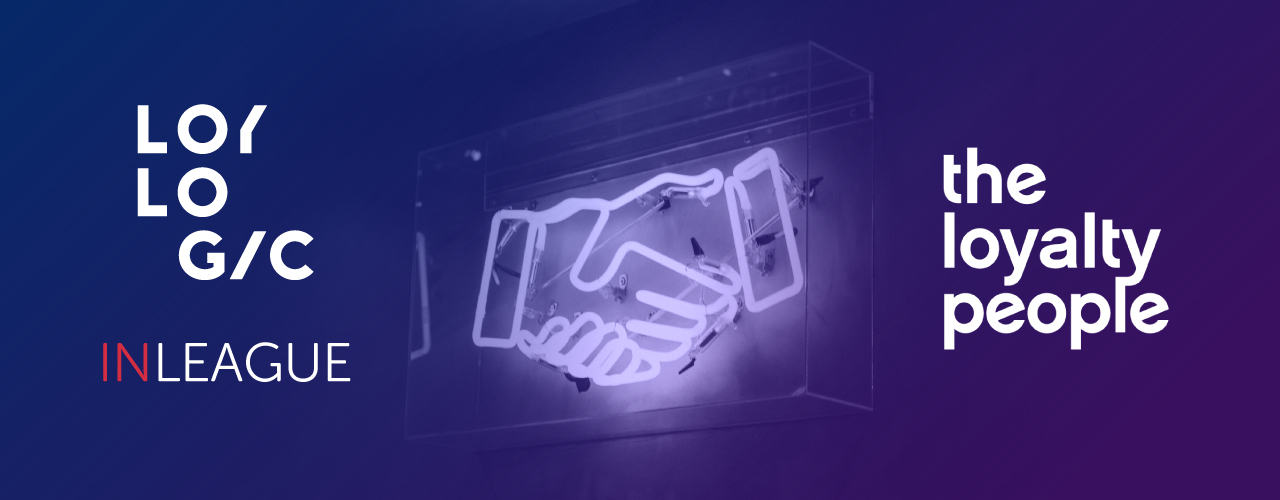
The Loyalty People, headed by Tom Peace, has joined Loylogic’s innovation focused INLEAGUE channel partner program.
-
A fusion of forces: The Loyalty People join Loylogic’s INLEAGUE program

The Loyalty People, headed by Tom Peace, has joined Loylogic’s innovation focused INLEAGUE channel partner program.
-
The Loylogic Podcast - Redefining B2B loyalty best practice
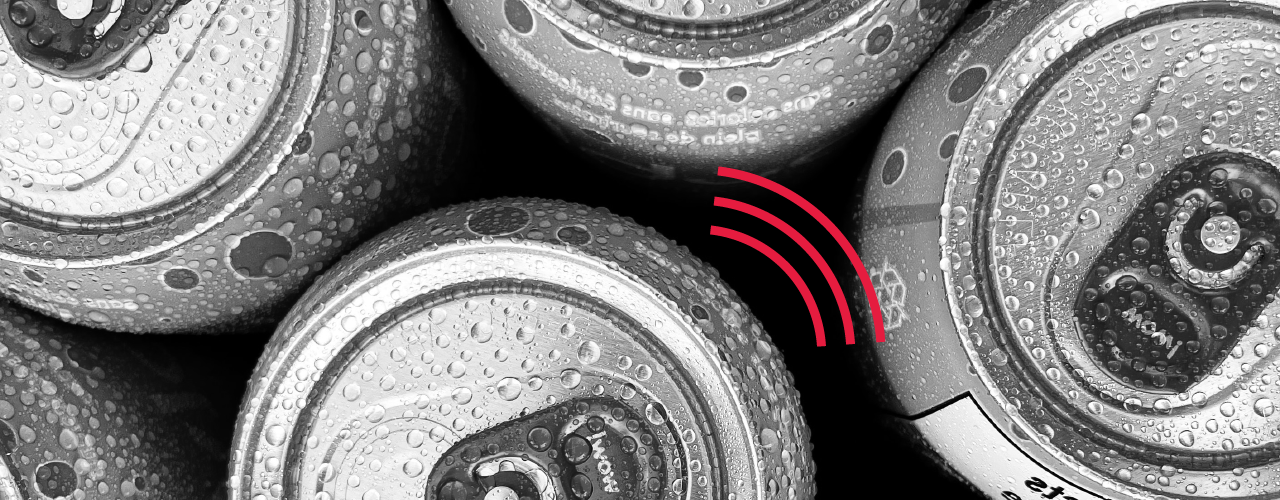
In this episode of the Loylogic Podcast, we welcome Ozan Yagci, co-founder of one of Loylogic’s INLEAGUE channel partners, Apex Loyalty, to dive into the world of retailer B2B loyalty best practice, to find out what is driving successful enagement and rewards programs.
-
The Loylogic Podcast - Web3 x loyalty: building communities with digital assets

In the world of ever-evolving technologies and digital ecosystems, Web3 has the potential to revolutionize the way we interact and engage online. At the heart of this transformation lies the concept of community building, which has been amplified and invigorated by the integration of digital assets. These digital assets have given rise to new possibilities, particularly in the realm of loyalty programs, where brands and organizations can enhance customer engagement, foster long-term relationships, and create thriving communities like never before.
-
Loylogic partners with Loyalty Lab to enhance hotel rewards experiences and engagement

Loyalty Lab, the loyalty consultancy founded by Vicky Elliot, a hotel industry professional with over 25 years of marketing experience in the luxury travel industry, has joined Loylogic’s rapidly growing INLEAGUE partner program as a strategic consultant.
-
Loylogic partners with Loyalty Lab to enhance hotel rewards experiences and engagement

Loyalty Lab, the loyalty consultancy founded by Vicky Elliot, a hotel industry professional with over 25 years of marketing experience in the luxury travel industry, has joined Loylogic’s rapidly growing INLEAGUE partner program as a strategic consultant.
-
Loylogic to redefine B2B loyalty engagement through key partnership with Apex Loyalty

Apex Loyalty, the pioneer of an award-winning B2B customer engagement and loyalty solutions platform, has joined INLEAGUE, Loylogic’s rapidly growing partner program.
-
Loylogic to redefine B2B loyalty engagement through key partnership with Apex Loyalty

Apex Loyalty, the pioneer of an award-winning B2B customer engagement and loyalty solutions platform, has joined INLEAGUE, Loylogic’s rapidly growing partner program.
-
Realizing the full potential of airline loyalty: five key takeaways

In a recent episode of the Loylogic podcast, Evert De Boer, CEO and co-founder of Fidivio, and Managing Partner at On Point Loyalty, joins Gabi Kool, CEO of Loylogic, to discuss how the full potential of airline loyalty can be realized.
-
Bank Loyalty in UAE and Saudi Arabia: embracing growth and innovation

The banking industry in the United Arab Emirates (UAE) and Saudi Arabia is witnessing a significant shift in customer loyalty trends. Not only are bank loyalty programs becoming increasingly prevalent, financial institutions are also looking to be increasingly innovative when it comes to their loyalty programs, moving towards more comprehensive loyalty initiatives.
This article, based on a recent episode of The Loylogic Podcast where Paul Wallis, Director of Growth at loyalty specialist Epsilon, explores the emerging trends, local opportunities, and the future of bank loyalty programs in the region (click here to listen to the podcast in full).
The shift towards loyalty programs
The interest in loyalty programs within the financial sector is rising rapidly. While loyalty programs were initially focused on retail, banks are now recognizing the importance of fostering genuine loyalty among their customers. This shift is evident across the region, particularly in Saudi Arabia, where significant growth is accelerating. The UAE, although relatively stable, has also witnessed the rise of digital banks, adding to the demand for loyalty programs.Local trends and opportunities
Digital transformation is a predominant trend across the UAE and Saudi Arabia. Banks are actively embracing this transformation by incorporating super apps, partnering with fintechs, and exploring initiatives such as Web3.Personalization has also become a crucial factor as banks aim to cater to the diverse demographics of their customer base. The younger, digitally savvy population, especially in Saudi Arabia, desires gamification and Web3 experiences. However, it is essential to align these initiatives with Sharia compliance and Islamic finance principles, respecting the cultural nuances of the region.
The future outlook for bank loyalty
The future of bank loyalty – and loyalty across all sectors – in the region looks promising. There’s a unique situation as certain families own multiple businesses, meaning there is a unique opportunity to create loyalty apps that touch various aspects of people's lives.These conglomerates can build ultimate loyalty by offering seamless experiences across different sectors, thereby keeping customers within their ecosystem. The future will likely witness the emergence of innovative loyalty programs that leverage these advantages to enhance customer engagement and retention.
Key takeaways for bank loyalty program managers
1. Cultural Sensitivity and Regulatory Compliance: Understanding local regulations and cultural sensitivities is crucial when designing loyalty programs that span across the Middle East. Each country may have specific regulations that need to be considered.2. Localization and Personalization: Tailoring loyalty programs to the local market and individual preferences is key to success. Local platforms that offer localized content tend to perform better, as customers prefer familiar experiences.
3. Data Security and Payment Integration: Ensuring robust data security measures and seamless payment integration are essential for building trust and convenience for customers.
4. Collaboration with Partners: Enabling customers to use loyalty points as a currency across various partner businesses enhances the value proposition and expands the reach of loyalty programs.
5. Exceptional Customer Service and Feedback: Prioritizing exceptional customer service and actively seeking feedback enables continuous improvement and customer satisfaction.
6. Competitive Analysis: Keeping an eye on the competition helps banks stay innovative and stay ahead in the loyalty program landscape.
The UAE and Saudi Arabia are witnessing a significant shift in bank loyalty trends, with a move towards comprehensive loyalty programs. The future holds exciting opportunities for banks to capture customers' hearts, minds, and wallets by creating unique and personalized loyalty experiences. By understanding local regulations, embracing localization, and fostering collaboration, banks can build loyalty programs that resonate with customers and drive long-term engagement and retention.
-
Bank Loyalty in UAE and Saudi Arabia: embracing growth and innovation

The banking industry in the United Arab Emirates (UAE) and Saudi Arabia is witnessing a significant shift in customer loyalty trends. Not only are bank loyalty programs becoming increasingly prevalent, financial institutions are also looking to be increasingly innovative when it comes to their loyalty programs, moving towards more comprehensive loyalty initiatives.
This article, based on a recent episode of The Loylogic Podcast where Paul Wallis, Director of Growth at loyalty specialist Epsilon, explores the emerging trends, local opportunities, and the future of bank loyalty programs in the region (click here to listen to the podcast in full).
The shift towards loyalty programs
The interest in loyalty programs within the financial sector is rising rapidly. While loyalty programs were initially focused on retail, banks are now recognizing the importance of fostering genuine loyalty among their customers. This shift is evident across the region, particularly in Saudi Arabia, where significant growth is accelerating. The UAE, although relatively stable, has also witnessed the rise of digital banks, adding to the demand for loyalty programs.Local trends and opportunities
Digital transformation is a predominant trend across the UAE and Saudi Arabia. Banks are actively embracing this transformation by incorporating super apps, partnering with fintechs, and exploring initiatives such as Web3.Personalization has also become a crucial factor as banks aim to cater to the diverse demographics of their customer base. The younger, digitally savvy population, especially in Saudi Arabia, desires gamification and Web3 experiences. However, it is essential to align these initiatives with Sharia compliance and Islamic finance principles, respecting the cultural nuances of the region.
The future outlook for bank loyalty
The future of bank loyalty – and loyalty across all sectors – in the region looks promising. There’s a unique situation as certain families own multiple businesses, meaning there is a unique opportunity to create loyalty apps that touch various aspects of people's lives.These conglomerates can build ultimate loyalty by offering seamless experiences across different sectors, thereby keeping customers within their ecosystem. The future will likely witness the emergence of innovative loyalty programs that leverage these advantages to enhance customer engagement and retention.
Key takeaways for bank loyalty program managers
1. Cultural Sensitivity and Regulatory Compliance: Understanding local regulations and cultural sensitivities is crucial when designing loyalty programs that span across the Middle East. Each country may have specific regulations that need to be considered.2. Localization and Personalization: Tailoring loyalty programs to the local market and individual preferences is key to success. Local platforms that offer localized content tend to perform better, as customers prefer familiar experiences.
3. Data Security and Payment Integration: Ensuring robust data security measures and seamless payment integration are essential for building trust and convenience for customers.
4. Collaboration with Partners: Enabling customers to use loyalty points as a currency across various partner businesses enhances the value proposition and expands the reach of loyalty programs.
5. Exceptional Customer Service and Feedback: Prioritizing exceptional customer service and actively seeking feedback enables continuous improvement and customer satisfaction.
6. Competitive Analysis: Keeping an eye on the competition helps banks stay innovative and stay ahead in the loyalty program landscape.
The UAE and Saudi Arabia are witnessing a significant shift in bank loyalty trends, with a move towards comprehensive loyalty programs. The future holds exciting opportunities for banks to capture customers' hearts, minds, and wallets by creating unique and personalized loyalty experiences. By understanding local regulations, embracing localization, and fostering collaboration, banks can build loyalty programs that resonate with customers and drive long-term engagement and retention.
-
The Loylogic Podcast: Taking airline loyalty to new heights

In this latest episode of the Loylogic podcast, Evert De Boer, CEO and co-founder of Fidivio, and Managing Partner at On Point Loyalty, joins Gabi Kool, CEO of Loylogic, to discuss how the full potential of airline loyalty can be realized.
In this entertaining and insightful conversation, Evert and Gabi discuss how loyalty programs, once the best kept secret of the airline industry, have stepped into centre stage of global airline economics. They delve into past stories about the development of airline loyalty, talk about present perceptions and how loyalty programs have become lucrative assets…and detail how the untapped potential of these programs can be unlocked.
Finally, Evert and Gabi look to the future and what they think the future holds for frequent flyers and airline loyalty.
Questions answered in this not-to-be-missed podcast include:
Chapter 1: Past stories: two decades of airline loyalty development (1:44 to 7:44)
- How was airline loyalty perceived two decades ago and how has this developed over the years?
Chapter 2: Present perception: lucrative assets, but still more potential? (7:45 to 20:06)
- Thinking about where airline loyalty is at today, it’s clear that loyalty programs are some of the most lucrative assets on airlines’ balance sheets and their sheer scalability, controllability and profitability make them stand-out in an operating environment that is perpetually challenging. Does this mean that programs are no longer flying under the radar like they once were?
- Program valuation is clearly extremely important when it comes to collateralizing airline loyalty programs and enabling attractive financing structures – how can programs ensure they have an accurate valuation?
- How can programs be used as part of capital allocation strategies, along the lines of a recent example such as the Apollo – Air France / KLM transaction related to Flying Blue?
- Where does profit and loss come into play? How can programs deliver higher operating margins?
- Are there any lessons that we can learn from high-achievers within airline loyalty?
Chapter 3: Future thinking: what next for frequent flyer programs and airline loyalty? (20:07 to 29:56)
- Looking to the future, what’s next for airline loyalty? Are we on the cusp of a new era in airline loyalty as organisations look to unlock the full potential? Are we going to see more adoptions of popular airline loyalty currencies by other airlines, like the recent examples of Finnair and Qatar adopting AVIOS?
- What opportunities are there for airlines to develop structures that will deliver ongoing growth?
- How do you see rewards developing over time?
- What headwinds will programs face and how can program managers overcome them?
The podcast transcript
(1:44): Evert and Gabi, you've worked with each other for longer than you probably care to remember, and have no doubt seen many changes in the airline loyalty world over the years. How was airline loyalty perceived two decades ago and how has this developed over the years?
Evert: "You're right. It is quite some time ago that I first met Gabi. In fact, he was my first boss who hired me in my first role at KLM Royal Dutch Airlines in Amsterdam, in 2000. I think on the one side, lots of things have changed. On the other side, some things are still the same. I do think that the program structures and the supporting organizational designs have changed a lot. And I think the programs are essentially more effectively run with stronger designs. And that's all for the better.
"When I joined KLM, back then, the department we worked for was called loyalty marketing. And I think, although in itself, it's a pretty good name, loyalty programs or loyalty strategy goes way beyond just the marketing component of it. It's something that we've witnessed over the last, let's say 10 years, with elements of economics and finance, and more behavioral economics and the whole psychological aspect of it coming into play.
"Back in 2001 or 2002, we were working on a potential merger between KLM and Northwest, who had launched the first transatlantic joint venture. As part of that project, it was considered to essential to combine the programs of KLM and Northwest. In the end, it didn't happen for a lot of reasons. But if we fast forward almost 25 years and see what's happening in the industry, now, with consolidation and sort of consolidation of loyalty currencies, it's interesting to see that the industry is still facing similar challenges, but at the same time, it's coming up with solutions for them."
Gabi: "Of course I have very fond memories of those 20 years ago when we were still young and innocent and full of ambition to make an impact on the world, which has been fun! I also recall from that time, you had to, as a loyalty marketer, really try to pull out all the stops to get it on the Board's agenda. Nowadays, of course, the asset value is so clear to the airline boards that the dynamic has completely changed.
"I remember that that we had one of the pioneers in the industry, Randy Petersen, who a lot of people will know well from Inside Flyer and the awards that he runs every year. I remember that we brought him over to talk to the KLM board and share, from an external point of view, the 10 recommendations that the airline should consider while thinking about loyalty strategies and its frequent flyer program. One of them was actually separating the state from the church argument that he used at the time, which basically meant considering running the loyalty program as a standalone business, spun out of the airline and treated as its own independent entity in the in the airline group. That was, in those days, a very early and challenging recommendation to make. Fast forward 20 years and you will see that, of course, a lot of different models have evolved in that space."
Evert: "If I can just pick up on Gabi's use of the term loyalty marketeer. I agree that it's a good term, but at the same time I sometimes warn my clients and colleagues, don't position yourself as a loyalty marketeer because it goes way beyond just the marketing aspect of it. In reality, it's a very interesting crossroads of all sorts of disciplines, including data analytics, operations, research, breakage, and liability management, financial optimization. I feel that we're kind of shortchanging ourselves if we call ourselves loyalty marketers, because it goes way beyond just the marketing aspect of it."
Gabi: "That's a very fair point. I think those kind of terms like member equity, the collective sum of the expected future profits of these kinds of customers. If you think about it in that way, then you also start thinking very differently in the boardroom about how do you grow that kind of significant assets of that consumer base across all your kind of touch points and businesses that you run as an airline can improve?
(7:45): What you're saying there leads us nicely into the discussion around the present perceptions and the fact that if we think about where airline loyalty is at today, it's clear that loyalty programs are some of the most lucrative assets on airline balance sheets, and their sheer scalability, controllability and profitability make them stand out in an operating environment that is perpetually challenging. Does this mean that programs are no longer flying under the radar like they once were? And how have perceptions changed?
Evert: "It's a fair statement, although I would put some nuances on it. Again, if we were to go back in time, 20 or 25 years, and I'm speaking not just about KLM but aviation or airlines in general, if you were to go to members of the board, or even the CFO or CEO of a large and medium sized airline and ask them, 'What is the value of the loyalty program? How much profit is it making?', I think they would struggle to give you a meaningful number. And the same goes for many of the shareholders and investors and analysts looking at airlines. Today, I think the picture has completely changed.
“To some extent, that is thanks to what happened during COVID-19. With all the collateralization and increased level of reporting done by airlines. So yes, that has completely changed. However, I would say that being aware of it, and doing the right thing are two separate things. If we were to ask that same question to the board or the CEO and the CFO today, I think a lot of them would have an increased knowledge and appreciation of the potential profitability of the program. But that's not to say that they have a full understanding of the drivers of profitability and the levers that they have at their disposal. Awareness, yes, but actually turning that into meaningful actions and, you know, implementing the correct strategy and organizational structure, I still think we have some ways to go."
Gabi: "Yeah, I would fully echo that. I think while airline CEOs or the boardroom know the value, of course of those FFP departments, I still see very often that they are somewhat hampered in the being a true kind of marketing company as well, to really kind of create the full value of what these FFP departments can unlock for an airline.
"Governance is key, because there are still many airlines where it's extremely hard for the people running FFP departments to be true partners to their non-air partners in the schemes. A lot of partners would sometimes struggle with limited exposure to the database, or the marketing that they can send out via the programs. There's always this kind of trade-off between how much do we communicate to a member? How do we communicate about airline related matters and offers? And how do you basically enable a structure whereby the FFP department can be a marketing bureau for the partners and the benefit of the members? That comes with elements like setting up the right opt-in and opt-out type structures for members. Rather than having one opt out for any communication that goes out for both the airline and the frequent flyer program, and for the members, you need to put a different kind of infrastructure in place, that so if somebody decides that they do not want to get more offers or content from that particular program, that they are not lost to the larger airline group. And so there are certain elements that that often hamper the true potential of the commercial elements of what such an airline loyalty business really can be."
Evert: "Just to add to that, I think you would be surprised about the number of airlines that we encounter, where revenue management still considers reward travel as non-revenue. So they put it in the same bucket together with travel agents or other incentive categories, and essentially don't attach any monetary value to miles being redeemed, which, in our view, doesn't make any sense. But that's just one sort of very tactical example. I think there's lots of headroom to grow and fully appreciate the value and then institutionalize that appreciation in the actual algorithms and financial reporting, and not completely disregard it."
(12:35) Related to that is program valuation, which is clearly extremely important when it comes to collateralizing airline loyalty programs, and enabling attractive financing structures. How can programs ensure they have an accurate valuation?
Evert: "I agree with what you said, and valuations are important. And clearly they play an important role in any potential collateralization. However, I think they are one piece of the puzzle. I think the bigger puzzle is around understanding what is the value expressed as a P&L and then have control over it? How do we influence that P&L? Then I can take the P&L and apply it in my capital allocation optimization strategy. Getting the valuation right is important, but probably even more important is understanding, okay, what's the opportunity? What levers can I pull or push to influence the performance of that segment? What are the underlying trade-offs?
"Collateralizing is basically using the program as collateral to raise financing. That's one thing that you can do, but there's other avenues as well. But if you don't have the full overview of the landscape, you'll never be in a position to judge the competing alternatives. So we say first, establish a proper view of how is the business or the segment or the unit performing today, and how could it perform in the future? And what are the underlying trade-offs that you are faced with?"
(14:04) How can programs be used as part of capital allocation strategies, along the lines of a recent example of the Apollo Air France KLM transaction related to Flying Blue?
Evert: "I think, basically, if you have a well run program, it's an asset within your toolbox that you can use to raise financing. The Air-France KLM example is indeed a very recent one, where basically they got an external investor to buy bonds on their separated loyalty business, and that allows them to treat it as equity under French IFRS rules. Well, clearly, I am no expert on French IFRS rules but from what they have disclosed, that seems like a good solution for their problem.
"I think if we go back in time, Avianca first used this tactic whereby they used the loyalty program to raise financing instead of the airline. And by doing so they were able to exploit much favorable terms of credit. In other words, the coupon or the interest they have to pay on the on the loan was much less than if they had used the airline. The model is out there. It's tried and tested.
"I guess the bigger picture here is that airlines continuously need to raise finance. And because of the different characteristics that a loyalty business represents, if there is an efficient degree of separation, you can exploit some of those characteristics to your benefit, and basically run a more effective capital strategy."
(15:55) Gabi, if I could bring you in here, where does profit and loss come into play? And how can programs deliver higher operating margins?
Gabi: "If you've got to break down a P&L in a simple way, for our programs, you would sell miles at a certain price to non-air partners at a certain rate per point. On the other hand, you've got a cost per point when the actual redemptions are taking place. So if you can, in a very simplistic way, think about how you can increase that spread by also, for example, lowering the cost per point on the redemption side, then by definition, you will increase your operating margins.
"There's an interesting trend that we foresee around quick micro redemption options. For example, if you think about using your miles or your points for sweepstakes or raffles at a much lower cost per point, but still do it in a way that members enjoy and find fun, then you can drive a certain portion of the miles redemption into that redemption bucket, that could have an impact on the overall weighted cost per point, i.e. a lower weighted cost per point, which of course would improve your operating margins, and also technically allow you to reclassify your outstanding points liability against that lower weighted cost per point across all redemption categories.
"There are all kinds of levers to play with. But what is often forgotten somehow is the impact that redemption cost can have in this whole mix, because that's still where 70% of all the costs are sitting in these kinds of programs. When we look at the P&L side, that would be an area of focus for me."
(17:41) Are there any lessons we can learn from the high achievers within airline loyalty?
Evert: "Ultimately, what drives success? If we have to boil it down, it's utility in the currency, meaning it's easy to earn, there are no complex terms or conditions. It's intuitive. It makes sense, members get it and will go out of their way to get their hands on the points or miles or whatever.
"I think a program can achieve that when the program can move with speed and precision. And what I mean by speed and precision is that you run a loyalty business that puts out an attractive currency, effective partnerships, it can move rapidly, it's not bogged down by IT issues. Precision is important because it implies having control over the performance of the business if I pull this lever, this is what will happen to my yields. If I pull that lever, this is what will happen to my cost per point to my breakage. If we look at programs, or loyalty companies that we think are very successful, I think these are the common characteristics."
Gabi: "I think to build on Evert there, we are talking about currencies here, airline miles are currencies. Every currency lives or dies with trust in that particular currency. The predictability and not a lot of unexpected devaluations all the time of that currency and the fact that members and partners can rely on the airline program as a reliable partner who will do anything to try to protect, within the economic kind of environment, the value of the currency, that is also a very important element in my view."
(20:07) If we look to the future, what's next for airline loyalty? Are we on the cusp of a new era in loyalty as organizations look to unlock the full potential, are we going to see more adoptions and kind of popular airline loyalty currencies been picked up by by other airlines such as the recent examples of Finnair and Qatar adopting Avios?
Evert: "As you rightly point out, Finnair and Qatar Airways are adopting or have adopted Avios as their currency whilst retaining their own program. I think this is a great example of showcasing or demonstrating, again, the utility in the currency. I would speculate that these airlines considered the various alternatives and ultimately made a decision to join a very strong currency that offers a lot of utility. So I think that makes total sense.
"Coming back to my earlier point, building on the increased awareness across all the different stakeholders and constituents in the system, I think airlines will continue to come up with better strategies and stronger content for their programs. I think IAG is an interesting one. They talk a lot about IAG loyalty, they've set it up as a separate segment. And they're really trying to educate the market and the analysts about how this is a very exciting business that we have here. It wouldn't surprise me if, at their upcoming capital markets day, they will talk a little bit more again about their loyalty business. And I think others are sitting up and considering, 'Hey, you know, what should we be doing? Should we be looking at a P&L? What is our P&L? How do we optimize it? And then if you have the P&L, how do we then communicate that to the market?' I think there's lots of interesting things that will happen in years to come."
(21:57): Gabi, what opportunities are there for airlines to develop structures that will deliver ongoing growth?
Gabi: "I expect the largest growth is in the space of the frequent flyer programs being present in the daily online shopping lives of their members. If you look at the P&L of frequent flyer programs, co-branded credit cards have counted for ages as the most important accrual partner in the program. I do think there's a similarly large opportunity existing in the space of affiliate marketing connected to the online spend of the members, but not in a way that it has been done for the past two decades.
"Affiliate marketing, as a customer journey, has always been extremely clunky, I would say, for users to go to an airline loyalty website, click on a link, go from there to kind of a shopping portal or a website and then basically wait six weeks before their points or miles were credited. And of course, nobody shops that way. I'm predicting that if you look at a program Flying Blue, and we are involved as Pointspay as the Loylogic Group to help them with their new venture of Flying Blue plus, which is entering into the affiliate payments space, by having their own payment button implemented on leading websites in France and the Netherlands in this particular case. I think there's an enormous amount of accrual Income to be generated there for the airline. At the same time a lot of value can be created for those online merchants by connecting them to this affluent consumer base."
(23:34) Gabi, sticking with you, it would be wrong to not discuss rewards in more detail here. So how would you see rewards developing over time?
Gabi: "I think it has been a quiet, stable base for a lot of kind of programs, but there's a lot of opportunity to reimagine how these rewards shops should look and the content that they should offer.
"Coming out of COVID-19, a lot of load factors are higher, airlines have rationalized their capacity, and as a result, reward seats are harder to get than prior to COVID. And you see some kind of pushback in the media, either in Australia or in in the US last week with Delta, you see kind of a lot of stress in the system on the flight-related reward. So, I think non-air rewards have to play a more significant role.
"Now, the question is, how do you structure that in a way that the cost per point, if this means cash going outside the ecosystem of the airline groups into third party type rewards offerings, in such a way that if that cash out happens that you benefit from that as airline loyalty program with a lower weighted cost per point? I think the rewards require a lot more imagination, having different brand partnerships in place to have unique content in the reward shop, which might not be easily found elsewhere, like early access to new releases or unique offers, but also presented in a much more memorable user experience than what it has been for the last few decades.
"If you look at loyalty programs in the fast moving consumer goods industry, they are very often run by very brand focused marketeers, I would say, and you will see that rewards shops are truly an extension of the actual brand positioning of that particular brand. I think it might be interesting for frequent flyer programs to also really think through what should such a brand extension mean, in light of my brand, what I stand for. We've also chasing a new dynamic around sustainability, so what kind of brand extension would you like that reward shop to be? So I do foresee that it's time to reimagine that part.
"Another element that could be interesting to think about is cash as a redemption offer, which of course, has always been popular in any kind of loyalty offering. Traditionally, airlines have been quite reserved in offering that, but we do think that there's probably a space for having virtual rewards cards as an alternative to gift cards that can be then embedded in Apple Pay or Google Pay or Samsung Pay wallet. But again, at the lower kind of cost repoint compared to the regular rewards, the flight rewards. And this probably would not be something that I would let loose on the entire FFP database. I more see this as an extra benefit for elite members who will redeem their miles anyway. And then you might want to position that more virtual cash element only for that segment. So these are just some of the hypotheses were having what we might see in that space."
(26:49) To wrap up the discussion, what key takeaways can you give anybody looking to maximize the potential of their airline loyalty program?
Evert: "I think I'll repeat myself when I say that, in order to truly benefit from the potential value that a loyalty program can bring, it's critical that you understand how it's performing and what are the levers that you have at your disposal to influence that performance? I think that's critical.
"I do want to mention two headwinds that I think are important to talk about. The first one is kind of building on what Gabi said, increased pressure in the system on award availability. I think that's true. And I think, you know, the most successful programs will develop this skill to optimize or revenue manage access and pricing to rewards. In other words, you need to have a strategy that determines who gets access to what flight rewards at what price, and basically make sure that that's done in a in a smart way. So your best members get the best value. And yes, there is a role to be played for non-air because it can bring down cost per point, as well as act as a release mechanism for built up pressure.
"The other thing that I think it's important to mention as well, is that I think we're going to see increased regulation and legislation around loyalty programs, specifically in Europe. I think frequent flyer programs, that name itself, is enough to attract a lot of attention in the very near future. And I suspect that more and more regulators and legislators will turn their attention to it. I think it's inevitable, and it's up to the industry to come up with an appropriate response that makes sense for all involved stakeholders."
Gabi: "I think another potential headwind to be mindful of, is the continued pressure on interchange remains a risk for the frequent flyer business model. So again, diversification, or by focusing on tapping into, for example, online commerce might be an appropriate strategy.
"To wrap up this call, I would urge everybody to reimagine what the future could look like, taking all of these macro factors into play, but also making sure that the FFP department is truly positioned and enabled to function as a real marketing company for its partners within the airline ecosystem. I think that's a key takeaway for from my side, talking to a lot of FFP managers lately.”
-
Industry first MarPay™ product launched by Pointspay

Pointspay has announced the launch of a new MarPay™ concept that combines three principles of business; marketing, payments and loyalty. Through this combination, Pointspay gives companies the ability to grow profits in a unique and targeted way by joining loyalty programmes with a global network of advertisers and payment providers.
-
Industry first MarPay™ product launched by Pointspay

Pointspay has announced the launch of a new MarPay™ concept that combines three principles of business; marketing, payments and loyalty. Through this combination, Pointspay gives companies the ability to grow profits in a unique and targeted way by joining loyalty programmes with a global network of advertisers and payment providers.
-
Breaking Boundaries: Loylogic and Ethan & Alice Marketing Forge a Dynamic Partnership in East Asia

Ethan & Alice Marketing has become Loylogic’s newest INLEAGUE partner to deliver high performance customer loyalty and engagement across APAC.
-
Breaking Boundaries: Loylogic and Ethan & Alice Marketing Forge a Dynamic Partnership in East Asia

Ethan & Alice Marketing has become Loylogic’s newest INLEAGUE partner, to deliver high performance customer loyalty and engagement across APAC.
-
From Risk to Opportunity: Empowering Loyalty Program Directors to Demonstrate Program Value

In this episode of the Loylogic Podcast, Rob Clements, Lead Consultant at Loylogic, joins us to discuss how loyalty program owners can effectively measure and demonstrate loyalty program value, shifting thinking away from risk to opportunity.
-
From Risk to Opportunity: Empowering Loyalty Program Directors to Demonstrate Program Value

In this episode of the Loylogic Podcast, Rob Clements, Lead Consultant at Loylogic, joins us to discuss how loyalty program owners can effectively measure and demonstrate loyalty program value, shifting thinking away from risk to opportunity.
-
Icelandair and Loylogic launch new gift card platform for Icelandair Saga Club members

Dedicated new gift card platform opens up a world of travel and retail rewards options for more Saga Club members.
-
Icelandair and Loylogic launch new gift card platform for Icelandair Saga Club members

Dedicated new gift card platform opens up a world of travel and retail rewards options for more Saga Club members.
-
Pointspay and Flying Blue launch first-of-its-kind marketing and payment platform, Flying Blue+

New loyalty payment platform will offer Flying Blue members a new way to earn and spend Flying Blue Miles
-
Pointspay and Flying Blue launch first-of-its-kind marketing and payment platform, Flying Blue+

New loyalty payment platform will offer Flying Blue members a new way to earn and spend Flying Blue Miles
-
Taking innovative rewards engagement to the next level

Gabi Kool, CEO at Loylogic, explains why Loylogic is constantly pushing the boundaries of global rewards solutions through innovative incentives and experiences.
-
Loylogic and Ascendant Loyalty to supercharge loyalty and engagement through new INLEAGUE partnership

Ascendant Loyalty has become Loylogic’s newest INLEAGUE partner, combining the organisations’ complementary strengths to supercharge customer loyalty and engagement.
-
Visit Oman partners with Loylogic and ASP Online Software to launch global loyalty and reward program for travel trade partners

Loylogic has partnered with Visit Oman and ASP Online Software to launch an innovative Points-as-a-Service (PaaS) reward program for international travel trade partners.
-
Etihad Guest and Loylogic’s Virtual Reward Card gives program members another reason to spend miles in store and online
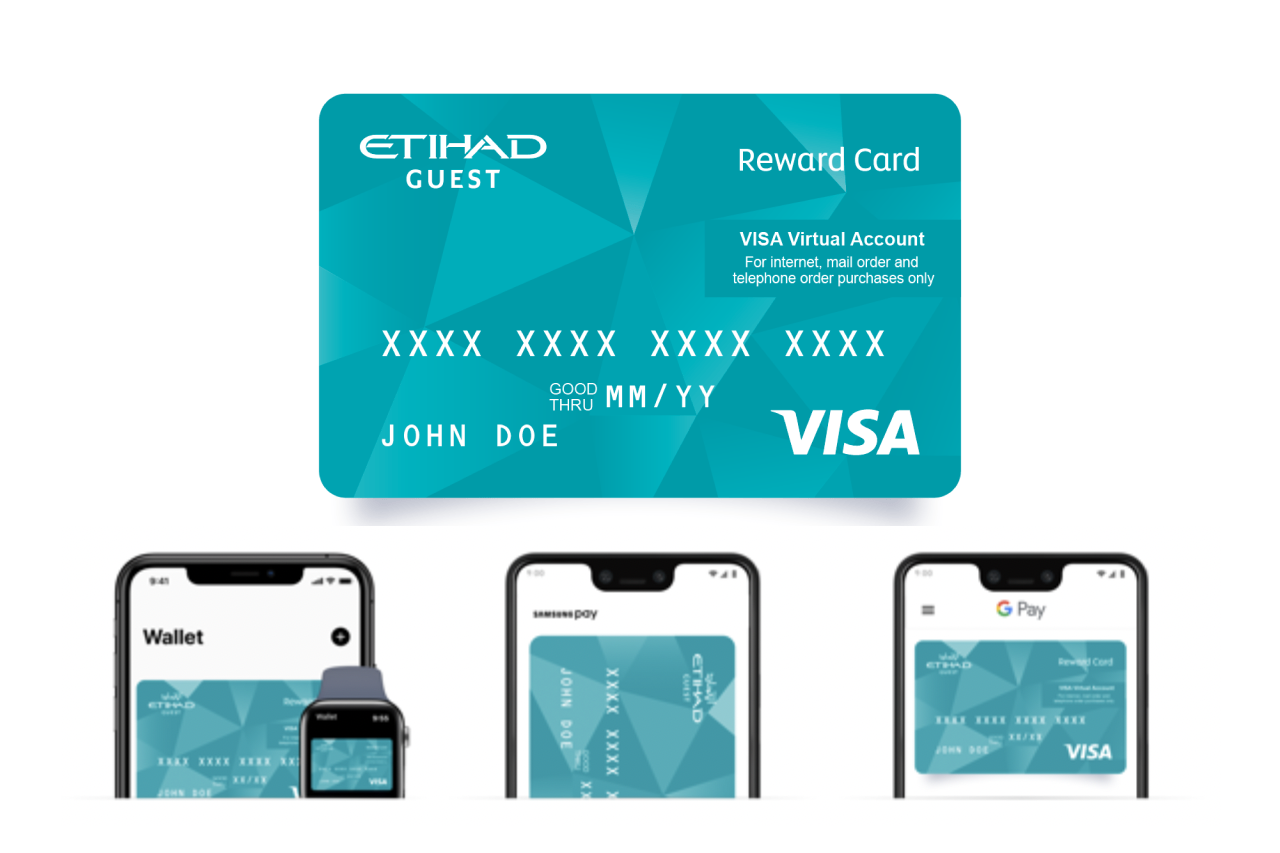
Loylogic, the global leader in loyalty and engagement solutions, and Etihad Guest, the award-winning loyalty program of Etihad Airways, have joined forces to launch the next evolution of its Reward Card for Etihad Guest members.
-
Etihad Guest and Loylogic’s Virtual Reward Card gives program members another reason to spend miles in store and online

Loylogic, the global leader in loyalty and engagement solutions, and Etihad Guest, the award-winning loyalty program of Etihad Airways, have joined forces to launch the next evolution of its Reward Card for Etihad Guest members.
-
Etihad Guest and Loylogic’s Virtual Reward Card gives program members another reason to spend miles in store and online

Loylogic, the global leader in loyalty and engagement solutions, and Etihad Guest, the award-winning loyalty program of Etihad Airways, have joined forces to launch the next evolution of its Reward Card for Etihad Guest members.
-
Loylogic Partners with Bits of Stock to enable reward program members to convert points into fractional shares

Loylogic, the global leader in loyalty and incentivized engagement solutions has partnered with Bits of Stock, the fintech that powers stock rewards programs, to introduce a new and innovative reward offering that allows loyalty program members to turn their points into shares of stocks.
-
Loylogic Partners with Bits of Stock to enable reward program members to convert points into fractional shares

Loylogic, the global leader in loyalty and incentivized engagement solutions has partnered with Bits of Stock, the fintech that powers stock rewards programs, to introduce a new and innovative reward offering that allows loyalty program members to turn their points into shares of stocks.
-
The next generation of bank loyalty in Africa
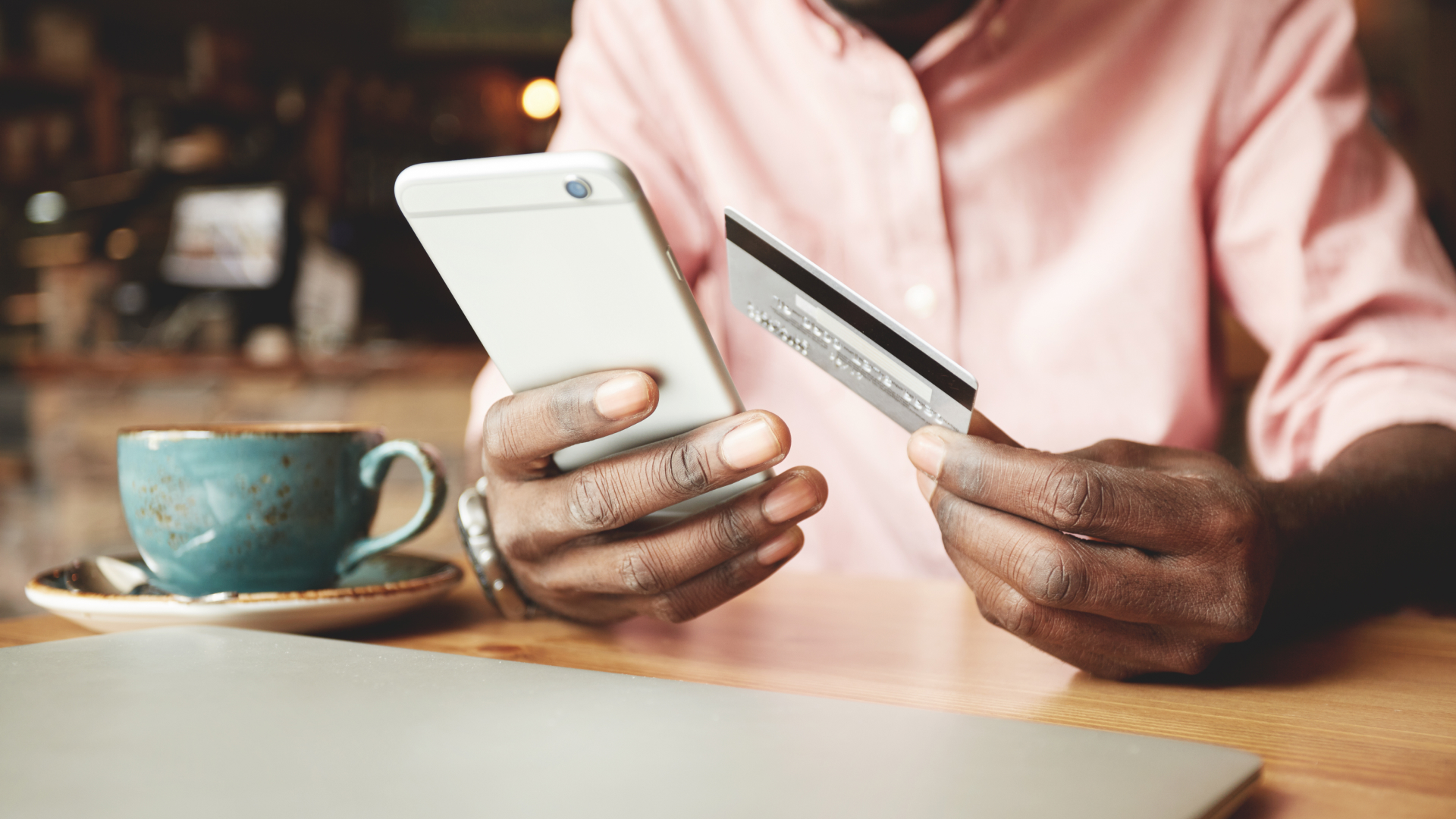
Earlier this year, Loylogic and Pinnacle Rewards, announced that they have partnered with African Bank to introduce a new industry-leading loyalty program designed to improve the financial wellbeing of customers.
-
The next generation of bank loyalty in Africa

Earlier this year, Loylogic and Pinnacle Rewards, announced that they have partnered with African Bank to introduce a new industry-leading loyalty program designed to improve the financial wellbeing of customers.
-
African Bank partners with Loylogic and Pinnacle Rewards to introduce new world-class loyalty program

African Bank is taking a definitive step towards improving the financial wellbeing of its customers with the introduction of a new, world class, loyalty program, called Audacious Rewards. The new program is being delivered with the support of Loylogic, the global leader in loyalty and engagement solutions, and Pinnacle Rewards, an established loyalty marketing powerhouse.
-
African Bank partners with Loylogic and Pinnacle Rewards to introduce new world-class loyalty program

African Bank is taking a definitive step towards improving the financial wellbeing of its customers with the introduction of a new, world class, loyalty program, called Audacious Rewards. The new program is being delivered with the support of Loylogic, the global leader in loyalty and engagement solutions, and Pinnacle Rewards, an established loyalty marketing powerhouse.
-
Loylogic and Nescafé Dolce Gusto enter Latin America with new rewards program, continuing global expansion

Loylogic, the global leader in loyalty and engagement solutions, and Nescafé Dolce Gusto today announce the launch of the CLUB rewards program in Brazil – a move which signals the partnership’s expanding global footprint and marks Loylogic’s entrance into the Latin American market.
-
Loylogic and Nescafé Dolce Gusto enter Latin America with new rewards program, continuing global expansion

Loylogic, the global leader in loyalty and engagement solutions, and Nescafé Dolce Gusto today announce the launch of the CLUB rewards program in Brazil – a move which signals the partnership’s expanding global footprint and marks Loylogic’s entrance into the Latin American market.
-
Focus on payments loyalty

Klarna’s new rewards programme worth watching – article by Gabi Kool, Chief Commercial Officer at Loylogic.
It’s an exciting period for those of us working in the loyalty industry, as increasing numbers of brands recognise the power of rewards to boost engagement and loyalty – and partner with companies creating innovative rewards technologies. And Klarna is fast becoming an exciting player to watch in this space.
-
Focus on payments loyalty

Klarna’s new rewards programme worth watching – article by Gabi Kool, Chief Commercial Officer at Loylogic.
It’s an exciting period for those of us working in the loyalty industry, as increasing numbers of brands recognise the power of rewards to boost engagement and loyalty – and partner with companies creating innovative rewards technologies. And Klarna is fast becoming an exciting player to watch in this space.
-
Loylogic Appoints Lansy Joseph as their New Chief Innovation Officer

Zurich, Switzerland | 6th September 2018
Loylogic, the global leader in e-commerce and e-payment solutions for loyalty programs, announces the appointment of Lansy Joseph as their new Chief Innovation Officer. Lansy, a strong advocate for innovation and technology, has worked with Loylogic for almost a decade in different roles on the technology and product development side. He has played an integral role in developing and driving the company’s technology and innovation roadmap spanning ideation to commercialization and worked on turnkey solutions, such as the conversion of points to Cryptocurrency feature that has been shortlisted for the 2017 Mega Award in Loyalty.
-
Royal Jordanian and Loylogic Deepen their Partnership by Launching a Global Reward Portal as well as Buy and Gift Miles
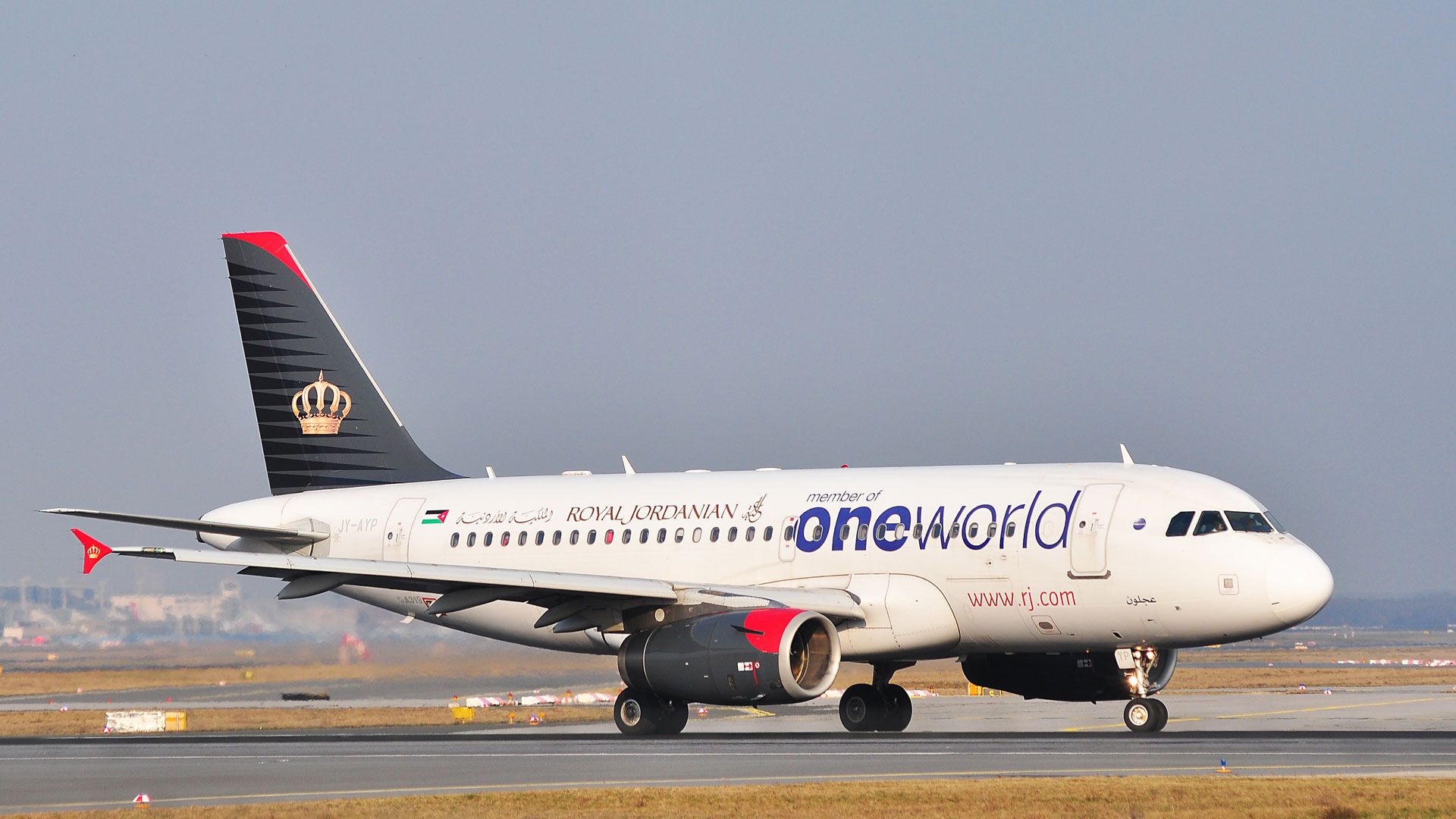
Zurich, Switzerland | Amman, Jordan | 7th January 2019
Loylogic, the global leader in e-commerce and e-payment solutions for loyalty programs, and Royal Jordanian Airlines have extended their partnership by launching an additional three of Loylogic’s leading solutions for their Royal Club loyalty program: Buy and Gift Miles solution as well as REX, the global rewards portal.
